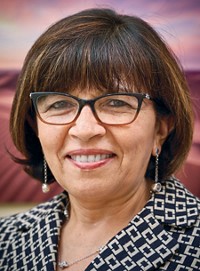Advertisement
Grab your lab coat. Let's get started
Welcome!
Welcome!
Create an account below to get 6 C&EN articles per month, receive newsletters and more - all free.
It seems this is your first time logging in online. Please enter the following information to continue.
As an ACS member you automatically get access to this site. All we need is few more details to create your reading experience.
Not you? Sign in with a different account.
Not you? Sign in with a different account.
ERROR 1
ERROR 1
ERROR 2
ERROR 2
ERROR 2
ERROR 2
ERROR 2
Password and Confirm password must match.
If you have an ACS member number, please enter it here so we can link this account to your membership. (optional)
ERROR 2
ACS values your privacy. By submitting your information, you are gaining access to C&EN and subscribing to our weekly newsletter. We use the information you provide to make your reading experience better, and we will never sell your data to third party members.
Environment
Environmental Improvement
Committee is promoting sustainability within ACS and in society at large
by Faith Hayden
December 17, 2007
| A version of this story appeared in
Volume 85, Issue 51
FOSTERING AWARENESS of environmental issues in science and public policy is all about collaboration, according to Charles E. Kolb Jr., chair of the American Chemical Society Committee on Environmental Improvement (CEI) and president and chief executive officer of Aerodyne Research in Billerica, Mass.
"Since our main thrust at CEI is to promote the sustainability of the chemical enterprise, we have strong reasons to collaborate with a wide range of ACS staff offices and governance committees that deal with important components of that enterprise," Kolb says.
CEI is responsible for advising ACS governing bodies on pertinent environmental issues in science and public policy. Once identified, these issues then become the focus of committee action and the source of its projects.
COMMITTEE ON ENVIRONMENTAL IMPROVEMENT AT A GLANCE ChairCharles E. Kolb Jr., President, Aerodyne Research Committee Websitemembership.acs.org/c/cei/ Membership15 members, 11 associates, two consultants, and one ACS staff liaison ClassificationJoint-Board Council Committee SubcommitteesEducation & OutreachSustainability InceptionEstablished by the ACS Board of Directors in 1968
Established almost 40 years ago, CEI has been operating with renewed energy since late 2005 when the ACS Board of Directors adopted the Sustainability of the Chemical Enterprise policy statement. That statement, which is available online at www.acs.org/policy, more clearly defines the concept of sustainability in the context of the chemical enterprise. "We view the policy statement as a real milestone for ACS and the motivating document for much our committee's current efforts," Kolb says.
Right now, one high-priority committee project is aimed at making ACS meetings as "green" as possible, says Kolb, noting that "meetings are responsible for the largest portion of the society's environmental footprint."
The committee has been identifying ways for ACS as a whole to reduce its environmental impact during meetings. For example, "recycling is now available at meetings, and water service is provided from pitchers in most meeting rooms," which reduces the society's use of bottled water, Kolb adds.
At the same time, CEI is also highlighting environmentally friendly actions that members can take individually, according to Martin A. Abraham, Sustainability Subcommittee chair and dean of the College of Science, Technology, Engineering & Mathematics at Youngstown State University, in Ohio.
For CEI, the trick is getting that information out. At the 2007 spring national meeting, CEI worked with ACS staff and student volunteers to distribute thousands of "Are You Sustainable?" pins and cards, outlining environmentally conscious practices such as reusing hotel towels.
For example, "by choosing not to replace bath towels and linens daily, an individual can save about 13.5 gal per day of water, as well as the detergent required for washing," Abraham says. According to a North Carolina Division of Pollution Prevention & Environmental Assistance waste reduction fact sheet, an average hotel consumes 218 gal of water per day, per room.
At the same time, CEI is currently reviewing ACS member recommendations generated at the Sustainability Luncheon held during a recent national meeting. Working with the Committee on Science, CEI encouraged discussion of sustainable energy, water, and food as a way to gain input to guide CEI's efforts.
In its quest to improve sustainability science literacy at every level of society, CEI is also working to incorporate sustainability-focused curricular material into traditional undergraduate chemistry courses. Ideally, education in sustainability science should include a greater understanding of ecology, green chemistry, and biogeochemistry, according to Matthew A. Fisher, chair of the Education & Outreach Subcommittee and an associate chemistry professor at St. Vincent College in Latrobe, Pa.
To help students access resources related to sustainable chemistry, CEI is considering developing a Web portal where students can learn about environmental issues, including possible graduate programs. Furthermore, CEI has contacted authors of general chemistry textbooks to discuss how they might incorporate sustainability-related topics into their materials.
In the science policy arena, CEI is currently updating and expanding a number of statements, including the ACS policy statement on climate change, which the ACS board recently approved.
The committee is also collaborating with the Committee on Science to construct a new policy statement, Scientific Insight & Integrity in the Government Policy Process. CEI plans on finishing drafts by the close of 2007.
Finally, CEI is researching and drafting a more comprehensive and action-oriented ACS policy statement on energy science and technology; the current statement will expire in 2008, Kolb says. "We want to catalyze ACS programming and policy activities to address both technical and nontechnical challenges to create a more sustainable chemical industry."





Join the conversation
Contact the reporter
Submit a Letter to the Editor for publication
Engage with us on Twitter